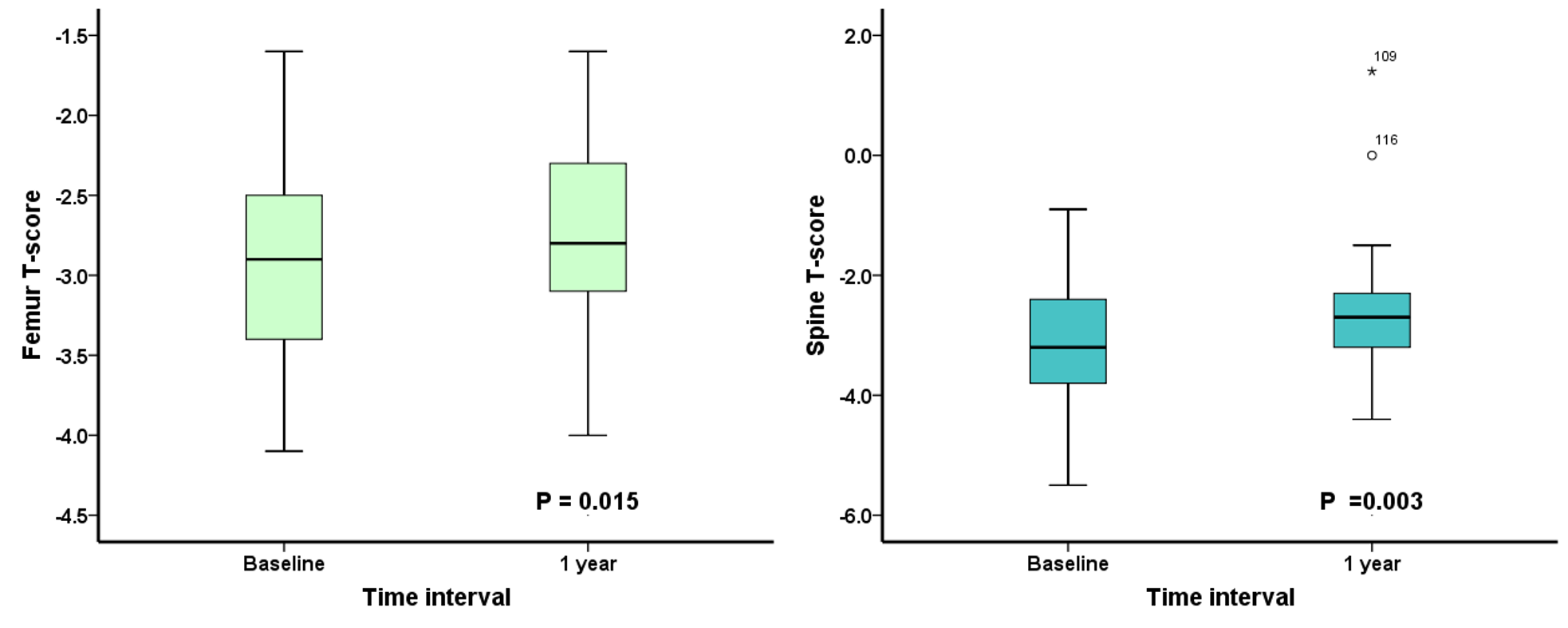Efficacy and Safety of Denosumab on Osteoporosis in Kidney Transplant Recipients
W. Park, J. Kwon, J. Lim, Y. Kim, J. Paek, K. Jin, S. Han
Division of Nephrology, Department of Internal Medicine, Keimyung University School of Medicine, Keimyung University Dongsan Hospital, Daegu, Korea, Republic of
Meeting: 2022 American Transplant Congress
Abstract number: 766
Keywords: Efficacy, Kidney transplantation, Osteoporosis, Safety
Topic: Clinical Science » Kidney » 35 - Kidney: Cardiovascular and Metabolic Complications
Session Information
Session Name: Kidney: Cardiovascular and Metabolic Complications
Session Type: Poster Abstract
Date: Saturday, June 4, 2022
Session Time: 5:30pm-7:00pm
 Presentation Time: 5:30pm-7:00pm
Presentation Time: 5:30pm-7:00pm
Location: Hynes Halls C & D
*Purpose: The use of immunosuppressive agents, especially glucocorticoids, are associated with increased risks of bone loss in kidney transplant recipients (KTRs). Denosumab, a potent antiresorptive agent, has been shown to increase bone mineral density (BMD), but the efficacy and safety on BMD in KTRs remain unclear.
*Methods: We analyzed 69 KTRs who used denosumab from 2018 to 2021. We investigated the change of BMD, calcium, phosphorus, parathyroid hormone (PTH), vitamin D, allograft function, tacrolimus trough level (TTL), complications of denosumab, acute rejection within 1 year and graft failure and death.
*Results: Before denosumab, the mean T-scores were -2.87±0.56, and -3.11±1.08 at the femur neck and spine area, and at 1 year post-denosumab, the mean T-scores were significantly decreased to -2.76±0.55, and -2.64 ±1.08, respectively (P=0.015; P=0.003). The levels of calcium, phosphorus, and creatinine were significantly decreased and those of PTH and vitamin D were significantly increased after denosumab, but there was no significant difference in the TTL. Only 2 KTRs had a new fracture despite 10 KTRs with the history of fracture. T-scores on BMD were significantly associated with fracture risk assessment tool (FRAX) score and FRAX score was significantly decreased after denosumab. Urinary tract infection (UTI) was 17.4%, but there was no significant hypocalcemia. Acute kidney injury, cardiovascular disease, and arthralgia occurred in 1 case each. Acute rejection within 1 year was 4.3% and there were no graft failure and death.
*Conclusions: The use of denosumab in KTRs is effective and safe for the treatment of osteoporosis, but it should be carefully monitored for UTI.
To cite this abstract in AMA style:
Park W, Kwon J, Lim J, Kim Y, Paek J, Jin K, Han S. Efficacy and Safety of Denosumab on Osteoporosis in Kidney Transplant Recipients [abstract]. Am J Transplant. 2022; 22 (suppl 3). https://atcmeetingabstracts.com/abstract/efficacy-and-safety-of-denosumab-on-osteoporosis-in-kidney-transplant-recipients/. Accessed February 20, 2026.« Back to 2022 American Transplant Congress

